Zebrafish Social Interaction
Advanced, markerless video tracking for precise and reliable results in studies of neuroscience, genetics, and pharmacology.
Data Types Captured
ConductVision’s system provides comprehensive data essential for analyzing zebrafish social interactions:
Positional Data
Tracks the x, y, and z coordinates of each animal in the experimental space.
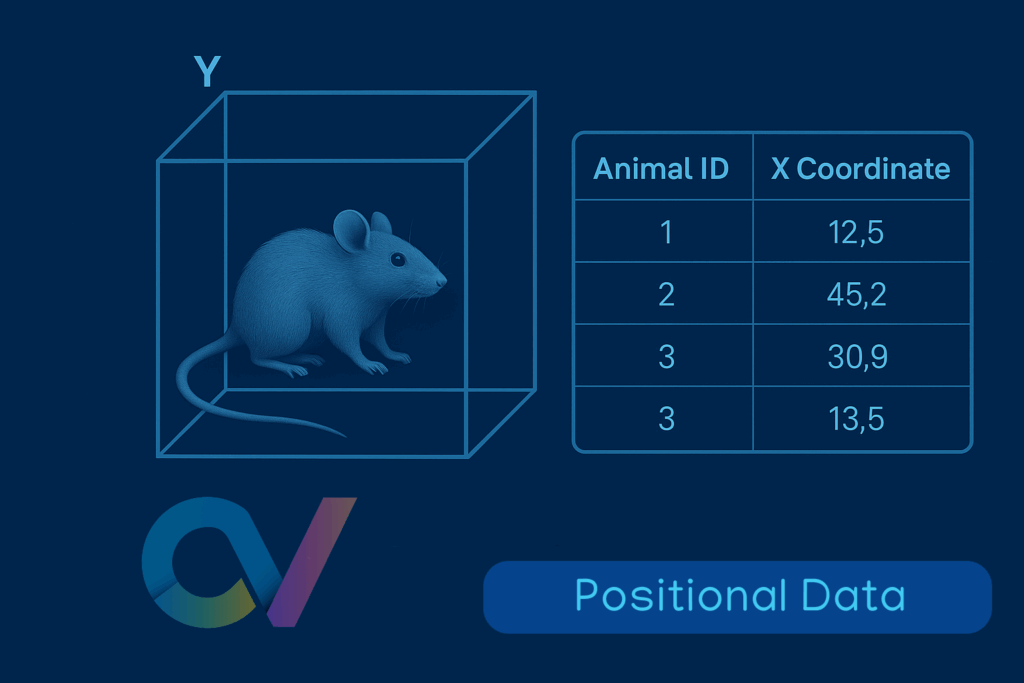
Movement Vectors
Visualize the direction and speed of movement using vector diagrams that reveal behavioral tendencies and activity levels over time.
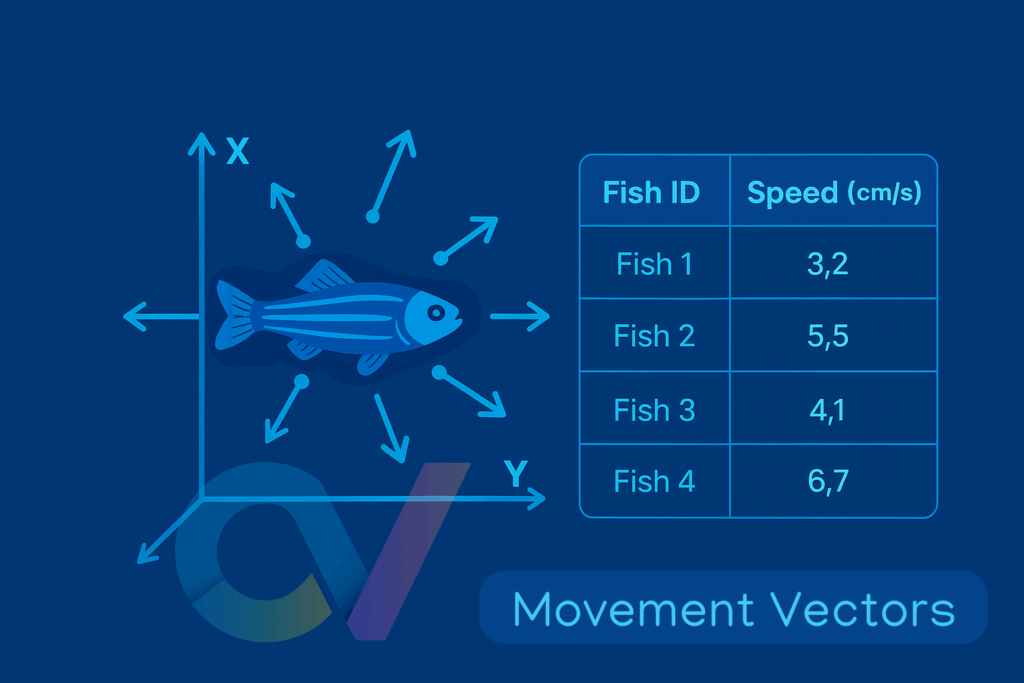
Interaction Events
Identify when and how animals interact, with heatmaps or timelines capturing events like grooming, sniffing, or chasing between individuals.

Body Posture and Orientation
Analyze detailed body positioning through anatomical point overlays and pose estimation, offering insights into posture, orientation, and movement quality.
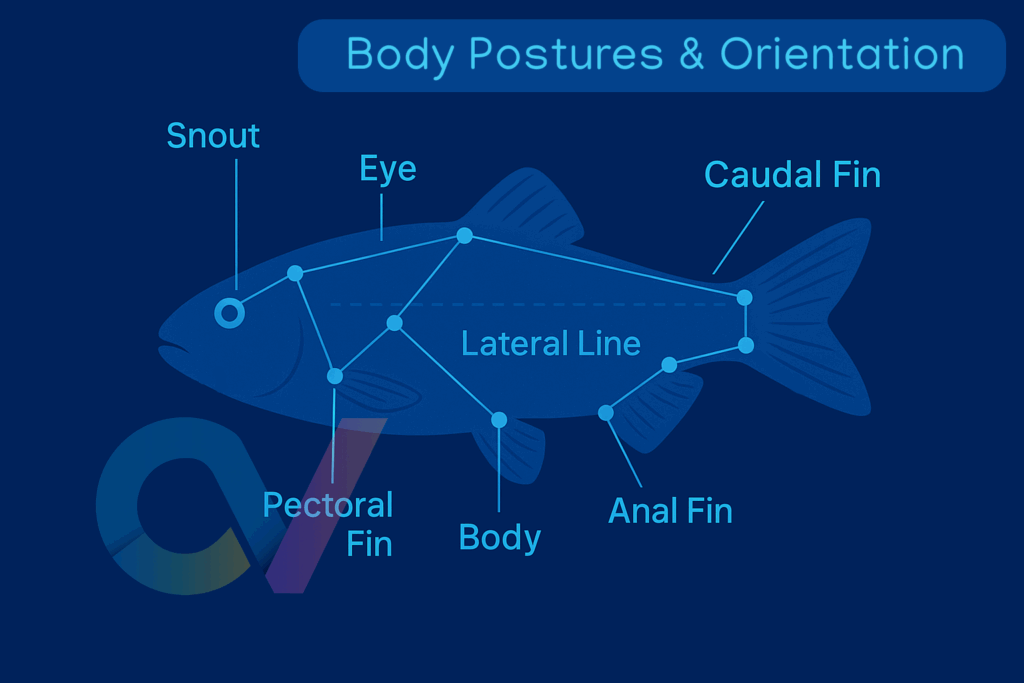
Behavioral States
Automatically classify animal behaviors—such as locomotion, resting, or socializing—using machine learning and present the data in intuitive visual formats.
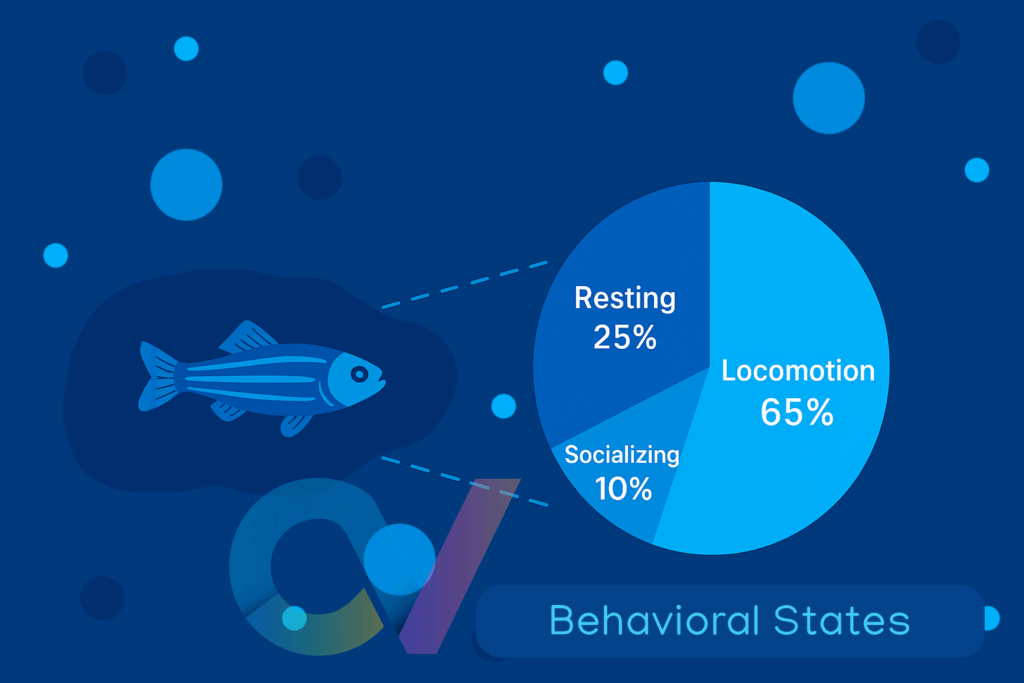
Interaction Frequency and Duration
Summarize how often and how long animals engage with one another, highlighting patterns of dominance, social bonding, or avoidance behavior.
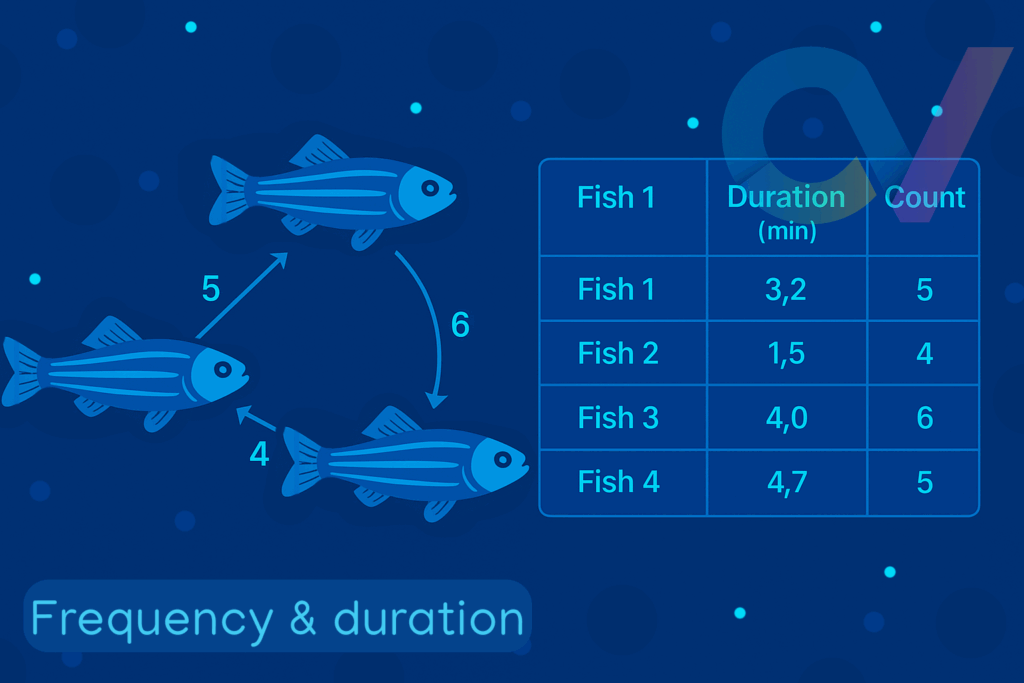
Tracked Social Behaviors
The system is designed to monitor a range of social behaviors in zebrafish:
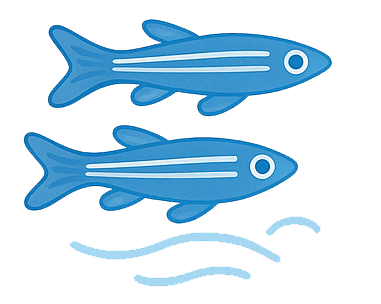
Shoaling
The tendency of zebrafish to group together, which can be indicative of social preference or anxiety levels.

Aggression
Aggression: Interactions involving chasing, biting, or other aggressive behaviors, often used to assess stress or territoriality.

Courtship
Mating-related behaviors, including display and pursuit, essential for studies on reproductive health.arXiv+5Frontiers+5WIRED+5
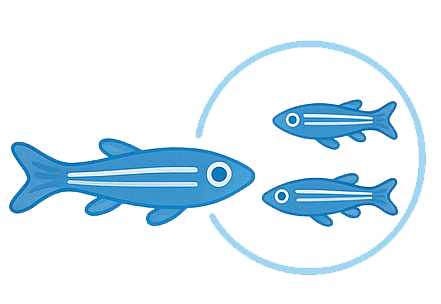
Social Preference
The inclination of zebrafish to spend time near conspecifics, used to evaluate sociability or social deficits.Frontiers

Avoidance
Behaviors where zebrafish move away from others, which can be a response to stress or discomfort.
Data Visualizations
To facilitate data interpretation, the following visualizations are provided:
Heatmaps
Illustrate areas with high concentrations of zebrafish activity, highlighting zones of frequent interaction.
Interaction Networks
Graphical representations showing the relationships and interaction frequencies between individual zebrafish.
Trajectory Plots
Depict the movement paths of zebrafish over time, useful for analyzing movement patterns and social dynamics.
Time-Lapse Videos
Visual recordings overlaid with tracking data to provide a temporal perspective of social behaviors.
Statistical Graphs
Bar charts or line graphs summarizing metrics like interaction duration, frequency, and behavioral state distributions.
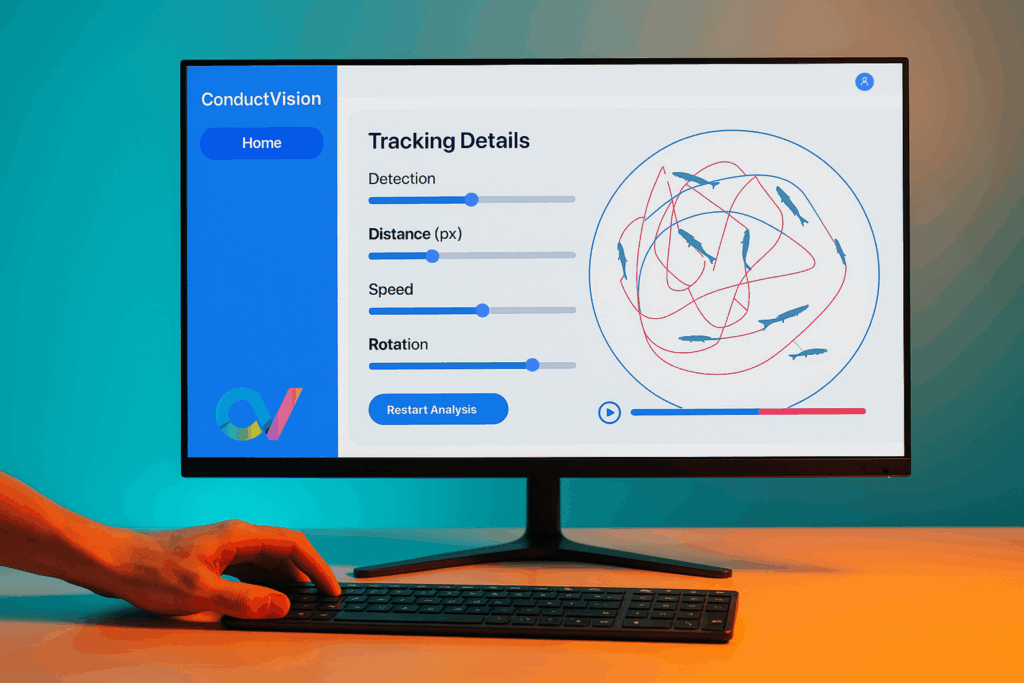
Tracked Social Behaviors
The system is designed to monitor a range of social behaviors in zebrafish:
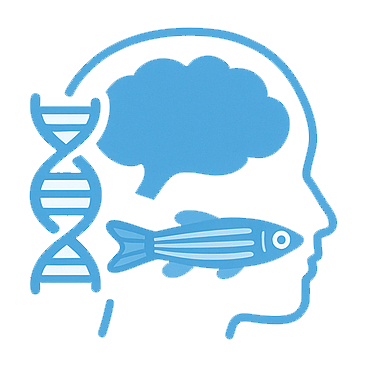
Neurodevelopmental Studies
Investigating how genetic or environmental factors influence social behavior
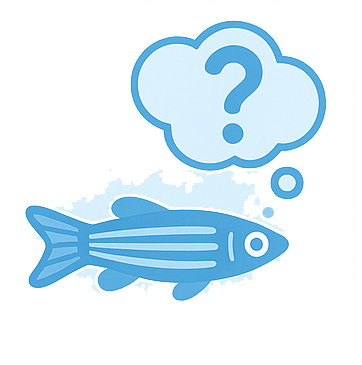
Psychiatric Disorder Models
Assessing social deficits in models of autism, schizophrenia, or anxiety disorders.

Pharmacological Testing
Evaluating the effects of drugs on social behavior and interaction patterns.

Toxicology Assessments
Monitoring behavioral changes in response to environmental toxins or pollutants.
Integration with Existing Systems
ConductVision’s platform integrates seamlessly with existing laboratory setups:
Group Housing
Multiple zebrafish housed together to study group dynamics and social hierarchies.
Pairwise Interactions
Observing interactions between two zebrafish to focus on specific behaviors.
Environmental Manipulations
Introducing variables such as altered lighting, temperature, or the presence of stimuli to assess their impact on social behavior.
Integration with Existing Systems
ConductVision’s platform integrates seamlessly with existing laboratory setups:
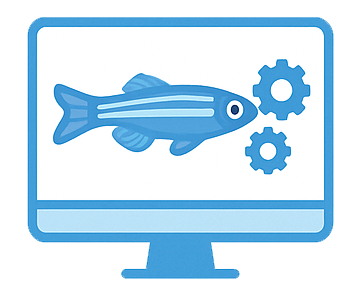
Hardware Compatibility
Works with standard zebrafish tanks, arenas, and tracking equipment.

Software Integration
Compatible with lab management and data analysis software for streamlined workflows.
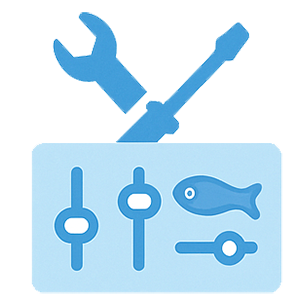
Customizable Protocols
Allows researchers to tailor tracking parameters and experimental conditions to their specific needs.
Professional & Trust-Building
Choose Your Plan
Free Trial
- High-Resolution Video Tracking
- Automated analysis
- Custom analysis for you
- Share with friends
Annual
- High-Resolution Video Tracking
- Multiple Test Support
- Automated Data Collection
- Data Analysis Tools
- Customizability
- Data Export and Sharing
- 24/7 Online Support
Full License
- High-Resolution Video Tracking
- Multiple Test Support
- Automated Data Collection
- Share with friends
- Customizability
- Data Analysis Tools
- Cloud Storage and Remote Access
- 24/7 Online Support
